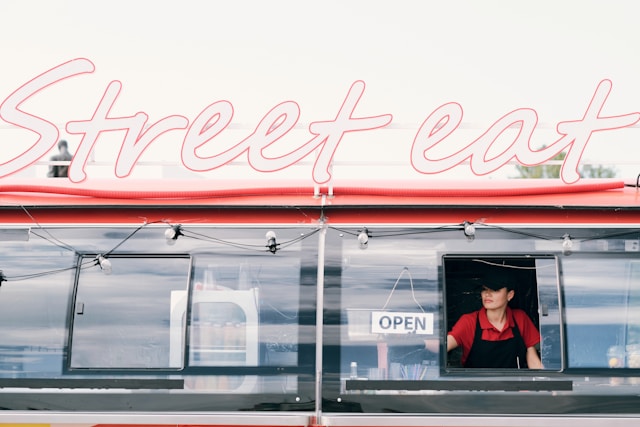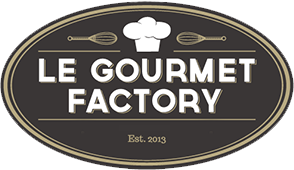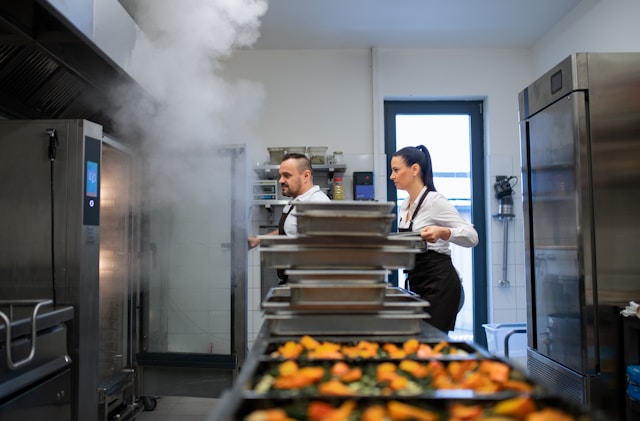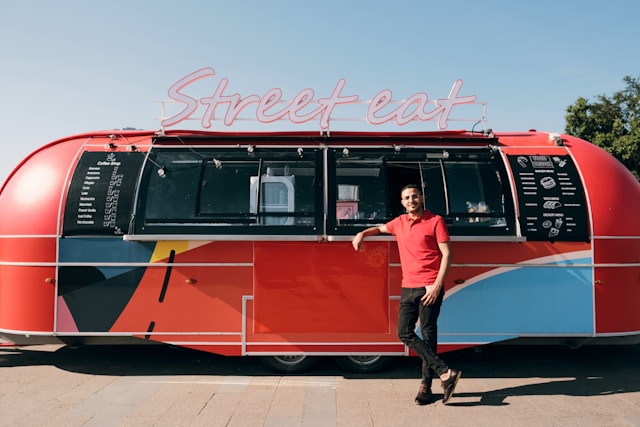Food Truck Business: 10 Things to Consider Before You Start
Considering starting a food truck? Learn the 10 essential factors to ensure success, from planning and budgeting to branding and operations.

Continue exploring the next articles in this series:
Discover food truck commissary costs and rentals. Learn about pricing, benefits, and tips for choosing the best facility to support…
Or navigate back to explore other related content :
Start your food truck business with confidence. Learn the essential steps, from planning and funding to branding and launching successfully.
Introduction
Starting a food truck business is an exciting opportunity for culinary entrepreneurs, but it’s not without its challenges. Before hitting the road, it’s essential to consider the key factors that will influence your success. From budgeting to menu planning, each decision plays a critical role in shaping your business. In this guide, we’ll explore 10 crucial things to think about before launching your food truck venture.
01: Understanding Your Target Market
Your target market determines the foundation of your food truck business. Consider the following:
- Who are your customers? Are you catering to office workers, festival attendees, or college students?
- What cuisines are popular in your area? Research the types of food that resonate with your target demographic.
- Where will you park? Identify high-traffic areas that align with your customers’ needs, such as business districts during lunch hours or event spaces on weekends.
Tailoring your offerings to your audience ensures a better chance of success.
02: Crafting a Unique Concept
The food truck market is competitive, so having a unique concept is essential. Your concept should:
- Highlight a specific cuisine, such as gourmet burgers, fusion tacos, or vegan desserts.
- Emphasize your brand’s personality through creative branding and truck design.
- Offer something distinct from competitors, whether it’s a signature dish or an innovative twist on a classic recipe.
A strong concept helps you stand out and attract loyal customers.
03: Creating a Business Plan
A comprehensive business plan provides direction and clarity for your venture. It should include:
- Mission Statement: Define your goals and purpose.
- Financial Plan: Outline startup costs, operating expenses, and projected revenue.
- Marketing Strategy: Detail how you’ll promote your business through social media, events, and partnerships.
Your business plan is not only a roadmap but also a tool for securing funding.
04: Budgeting for Startup Costs
Launching a food truck business requires a significant initial investment. Typical costs include:
- Purchasing or leasing the truck ($50,000–$200,000).
- Equipment and kitchen setup.
- Permits and licenses.
- Branding, marketing, and initial inventory.
It’s also wise to set aside funds for unexpected expenses, such as truck repairs or equipment replacement.
05: Navigating Permits and Regulations
Compliance with local laws is critical for operating a food truck. Common permits include:
- Business License: Allows you to operate legally.
- Health Permit: Ensures food safety standards are met.
- Parking Permits: Grants access to designated locations.
Research your city’s regulations early to avoid delays or fines. Refer to our Food Truck Business Permits guide for more details.
06: Designing an Efficient Menu
Your menu is the heart of your business, so it must be thoughtfully designed. Focus on:
- Simplicity: A streamlined menu ensures faster service and less waste.
- Profitability: Calculate food costs to ensure each item generates a healthy profit margin.
- Specialization: Offer standout dishes that reflect your unique concept.
A well-planned menu enhances customer satisfaction and operational efficiency.
06: Designing an Efficient Menu
Compliance with local laws is critical for operating a food truck. Common permits include:
- Business License: Allows you to operate legally.
- Health Permit: Ensures food safety standards are met.
- Parking Permits: Grants access to designated locations.
Research your city’s regulations early to avoid delays or fines. Refer to our Food Truck Business Permits guide for more details.
07: Selecting the Right Equipment
The equipment in your food truck determines how efficiently you can operate. Consider:
- Cooking appliances, such as grills, fryers, and ovens.
- Refrigeration for storing ingredients.
- Ventilation and fire safety systems.
Investing in reliable, high-quality equipment minimizes downtime and ensures smooth operations.
08: Branding and Marketing
Strong branding helps your food truck stand out and attract customers. Elements to focus on include:
- Truck Design: Use vibrant colors, eye-catching graphics, and a memorable logo.
- Social Media Presence: Share updates on your location, menu changes, and special events.
- Customer Engagement: Build relationships through loyalty programs and personalized interactions.
Effective branding creates a lasting impression and encourages repeat business.
09: Planning for Operations
Running a food truck requires careful operational planning. Key considerations include:
- Staffing: Hire skilled employees who can multitask and provide excellent customer service.
- Inventory Management: Keep track of ingredients to avoid shortages or waste.
- Daily Workflow: Develop processes for prep, cooking, serving, and cleanup.
Efficiency in operations keeps your business running smoothly, even during busy hours.
10: Preparing for Challenges
The food truck business comes with its share of obstacles. Anticipate challenges such as:
- Weather Dependency: Have backup plans for rainy or extreme weather days.
- Competition: Differentiate yourself with exceptional food, service, and branding.
- Truck Maintenance: Regularly inspect and maintain your truck to prevent costly breakdowns.
Planning ahead ensures you’re ready to tackle hurdles and stay on track.
Conclusion
Starting a food truck business is a rewarding journey that combines creativity, entrepreneurship, and customer interaction. By carefully considering these 10 factors, you’ll be better prepared to navigate the challenges and capitalize on the opportunities in this thriving industry.
For more detailed insights, explore the next steps in your food truck journey:
- Food Truck Setup: Learn how to equip and organize your truck for maximum efficiency.
- Food Truck Commissary Costs and Rentals: Discover the role of commissary kitchens in supporting your operations.
With the right planning and mindset, your food truck dream can become a reality.
- FAQ
fREQUENTLY ASKED QUESTIONS
What should I consider before starting a food truck business?
Key factors include understanding your market, creating a business plan, budgeting, and navigating permits and regulations.
How much does it cost to start a food truck?
Startup costs typically range from $50,000 to $200,000, depending on the truck, equipment, and permits required.
Why is a unique concept important for a food truck?
A unique concept helps you stand out in a competitive market and attract loyal customers through distinctive offerings.
What permits are needed for a food truck?
Common permits include a business license, health permit, and parking permits. Requirements vary by location.
How can I overcome challenges in the food truck industry?
Plan for obstacles like weather dependency, competition, and truck maintenance. Stay adaptable and focus on providing exceptional customer experiences.
Continue exploring the next articles in this series:
Master the art of food truck setup. From choosing equipment to creating efficient layouts, this guide covers everything you need…
Discover food truck commissary costs and rentals. Learn about pricing, benefits, and tips for choosing the best facility to support…
Or navigate back to explore other related content :
Start your food truck business with confidence. Learn the essential steps, from planning and funding to branding and launching successfully.
- 176A South Van Brunt Street Englewood, NJ 07631
Copyright © 2023 Le Gourmet Factory. All Rights Reserved. Website Design, SEO and Internet Marketing by Creative Click Media.



